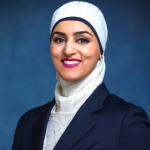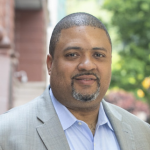What is your vision for the Sex Crimes Bureau and what changes will you implement, if any?
 Tali Farhadian Weinstein
Tali Farhadian Weinstein
A centerpiece of my policy platform for Manhattan District Attorney, and an important part of why I decided to run for this office, is to lead a wholesale transformation of the borough’s response to gender-based violence.
Sexual violence – including sexual assault, rape, and domestic violence – is pervasive, underreported, and under-prosecuted across the country; leading studies indicate that more than half of incidents of sexual violence are not reported, and when they are, survivors report widespread dissatisfaction with law enforcement.
I intend to build a Bureau of Gender-Based Violence that works alongside and in partnership with other government and non-government actors whose work is critical to meeting survivors’ needs.
My BGBV will be guiding by these core principles (which you can read about more in depth here):
- Victims and survivors come first, and my priority is to make sure they are comfortable reporting their experiences of gender-based violence.
- Investigations will take a victim-centered, offender-focused approach. During investigations, the office will take care not to traumatize victims a second time. Victims will never be treated as targets, and prosecutors will take seriously the obligation to keep victims informed and involved at every stage. When interacting with victims, prosecutors will demonstrate flexibility, sensitivity, and empathy. The office will investigate credible allegations with vigor, focusing on the offender’s actions and intent – not the victim’s behavior.
- Prosecutors will receive regular training in best practices, including trauma-informed interviewing, implicit bias, changing legal landscapes, the availability of survivor resources, and the needs of noncitizens.
- The office will strive to improve its handling of cases with special challenges to investigation and prosecution: drug-facilitated sexual assaults, cyber stalking, nonconsensual pornography, and other complicated cases.
- Prosecutors will approach gender-based violence with moral courage. Prosecutorial decisions must be driven by evidence, a commitment to pursuing justice in the individual case, and a commitment to securing the community’s long-term safety – not by the odds of securing a conviction. The office will thoroughly investigate all reports, closely engage with victims, and use experts and appropriate resources to make informed decisions about how to proceed.
- Conviction rates will not be the benchmark of a good prosecutor and a successful bureau, because this has historically prevented prosecutors from trying hard cases.
- BGBV office practices will be research- and data-informed.
- The bureau will be open to deploying innovative strategies that protect and prevent further violence, including community and restorative justice initiatives as alternatives to incarceration.
- The office will audit and update initiatives and procedures regularly, reflect changing best practices, and respond to findings or recommendations of internal reviews.
Read the Full Questionnaire
Tali Farhadian Weinstein Tahanie Aboushi
Tahanie Aboushi
The two key changes I will bring to the Sex Crimes Bureau are to provide better training—led by experts— to the entire bureau on how to listen to and talk to people who have been traumatized. Too often, people, even subconsciously, bring their own assumptions and perceptions, which even if well intended, can be really harmful to a person who has just experienced trauma. And second, I will make sure there is better and more complete support for all victims, whether or not a case is prosecuted. DAs have tended to only hear victims when victims agree to what the prosecutor wants. That is not helpful. We will support victims, as a case proceeds, after, and even if a case cannot be prosecuted for any number of reasons. We will advocate for the creation of a Victim and Witness Services Center that is staffed with clinical social workers, case managers, legal assistance attorneys, and immigration attorneys who will provide a range of supports for victims, especially sexual assault victims. These professionals will treat victims like clients, focusing on their interests and well-being, regardless of whether the police are called, an arrest is made in the case, or they choose to participate in a prosecution. Likewise, if the office decides dropping a prosecution is in the interest of justice, the Services Center will continue to provide support. Sometimes the government cannot prove a case, but that does not mean that there is no victim or that the victim does not need aid.
 Alvin Bragg
Alvin Bragg
I will create a high-quality, survivor-centered process that is transparent and focuses on trauma-informed investigatory techniques by police officers and ADAs, followed by a meticulous prosecution measured by the quality of the process rather than conviction rates. This includes NOT declining to bring a case that should be brought even if it will be a challenging case to secure a conviction at trial.
A trauma-informed response that respects survivor safety, privacy, and confidentiality is of paramount importance. It not only will change the process in the case under investigation; it will encourage other survivors to report their crimes, which can lead to communities that are, as a whole, made safer as survivors are supported and offenders held accountable.
I have published a comprehensive 10-point plan to reform the Sex Crimes Bureau on day 1 when I take office, that plan is available at https://www.alvinbragg.com/justice-for-survivors
 Liz Crotty
Liz Crotty
The DA’s office needs a bureau, not just a unit, that is designed to listen to the victims of these crimes, give them support, and provide a framework to hold defendants accountable while taking into consideration the landscape of the entire case.
The existing structure is not beneficial to the cases. ADAs assigned to sex crimes are also assigned to a caseload of general crimes. They answer to two sets of supervisors and they are not physically located with the supervisors who manage the sexual assault cases. Nor are they typically located with victim advocates or other support staff who help sexual assault survivors.
The office should create a Sex Crimes and Domestic Violence Bureau, where experienced ADAs would be assigned to work solely on sex crimes cases, including misdemeanor sexual assaults that are currently handled by first and second year ADAs. In addition to supervisors and line ADAs to handle these specific prosecutions, there should be additional investigators and victim advocates/social workers. There should also be an ADA to work exclusively on legislative reform and ADA training.
 Diana Florence
Diana Florence
My vision is to completely revamp the Sex Crimes Bureau, which will reflect the needs of survivors, including dedicated social workers, counselors, and survivor advocates.

Lucy Lang
Sexual assault and abuse are pervasive and devastating crimes that impact people from all walks of life. These crimes often victimize and revictimize the most vulnerable New Yorkers, including children, the elderly, trans people, people with disabilities and undocumented people. For far too long, survivors’ voices have been unheard by the very institutions charged with supporting them. I am committed to prioritizing justice for all survivors of sex crimes, whether the crime occurs in the street, in the workplace, on campus, on the internet, at home, or elsewhere.
To accomplish these goals I will:
- Advocate alongside survivors for “consent” to finally be defined in the New York State Penal Law
- Hold all people who commit sex crimes accountable — power and wealth will not be a defense, and the office’s equal access policy will apply to all attorneys representing people charged with sex crimes and misconduct
- Invest in a robust Sex Crimes Unit staffed with trauma-informed attorneys, investigators, clinicians and advocates who embrace survivor empowerment as a core part of their mission – Provide all assistant district attorneys with survivor-focused training, including trauma-informed prosecution, victim-centered interviewing skills, cultural humility, and implicit bias training
- Ensure that all sex crimes investigations and cases are handled by the same attorney(s)from start to finish
- Inform survivors of case developments in a timely fashion and provide regular updates – Partner with the Safe Horizon Child Advocacy Center to support child survivors of sexual trauma and their families
- Improve communication with the Special Victims Bureau of the Police Department and include police personnel in training
- Create an advocates advisory council that meets routinely to build trust and open communication between survivors and the DA’s office
- Institute a voluntary survey for survivors to assess their perceptions of how their needs were met and integrate feedback into office policies and practices
- Collaborate with non-profit and academic organizations to regularly evaluate the Sex Crimes Unit’s alignment with evolving best practices in psychology and the neurobiology of trauma

Dan Quart
As District Attorney, I will overhaul the Manhattan District Attorney’s Sex Crimes Unit and build an office that centers survivors and their experiences and cannot be corrupted by political or economic interests.
I will:
- Pursue cases when there is evidence a crime has been committed rather than shirking away from powerful or rich abusers.
- Reinvestigate unindicted sex crimes.
- Hold institutions that enable sexual assault accountable.
- Re-staff the Sex Crimes Unit (SCU).
- Complete an external audit of the office.
- Implement annual retraining for ADAs.
- Implement transparent reporting and release key data to hold our office accountable.
- Encourage people who were victimized as children to step forward.
- Make plea agreements transparent.